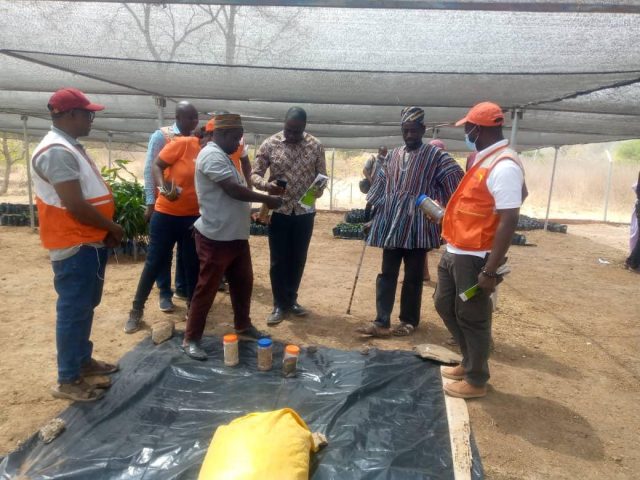A climate Smart Change initiative to restore the vegetation cover and boost agricultural production in the Savannah Region has been initiated.
The initiative, which is being implemented by World Vision Ghana Project on Landscapes and Environment Agility across the Nation (LEAN), has been educating rural dwellers on the need to protect the region’s vegetation cover.
Against this backdrop, about 4,800 seedlings were nursed and distributed to farming communities within the catchment area. The seedlings include cashew, Shea, mahogany, baobab, rose and Dawa Dawa.
The project is targeting to distribute over 40,000 nursery seedlings to the residents to plant on their farms as well as homes to combat climate change.
Due to population pressure and human activities such as indiscriminate tree felling for charcoal production and wood fuel, construction, and bush burning, the woodlands in northern Ghana are shrinking at an alarming rate.
Impact of Initiative
The European Union-funded project, however, brought sanity, protecting the region’s vegetation cover in some 20 communities leading to maximized agricultural production.
This came to light when the Board of Directors and staff of the World Vision Ghana Project on Landscapes and Environment Agility paid a working visit to some beneficiary communities in the Savannah Region.
The team visited the Jonokponto and Tailorpe communities in Damongo.
The Programme Director for the Integrated Project. Joshua Baidoo said, the project works with the communities to regenerate degraded parklands to restore the forest cover to boost agricultural production and the livelihoods of rural dwellers.
“The community members have been provided with incentives to ensure that they reduce bushfires in the areas that have been degraded are restored,” he said.
World Vision Ghana LEAN project, Coordinator Joseph Edwin Yelkabong, said the project was to address some major barriers in selected landscapes across the savannah, high forest and transitional ecological zones of Ghana to restore the degraded forest as well complement government commitment to preserving the forestry sector with the tree Green planting project.
He noted that the beneficiary communities were educated on the importance of tree planting and preservation for economic growth while alternative livelihoods were provided to encourage afforestation.
Beneficiaries
According to some beneficiaries, the inception of the project brought about sanity and made the communities become ambassadors for change.
Suleman Seidu, a beneficiary at Tailorpe, said the project helped in tackling illegal tree-cutting over the past years.
Another beneficiary, Mary Sulemana, said the project helped to provide them with alternative livelihoods as well as made community members desist from the charcoal business.










![Mr Logic signs two dancehall artistes unto his Red Panther record label [Video]](https://ghananewss.com/storage/2023/05/Mr-Logic-signs--100x75.jpeg)






